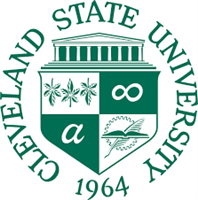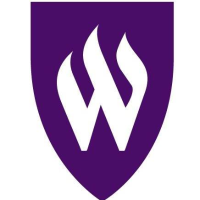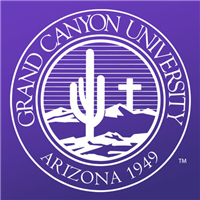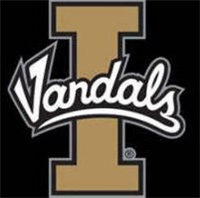What do they do?
Perform routine medical laboratory tests for the diagnosis, treatment, and prevention of disease. May work under the supervision of a medical technologist.
Also known as:
Certified Clinical Laboratory Technician, Clinical Laboratory Technician (Clinical Lab Technician), Laboratory Assistant (Lab Assistant), Laboratory Technician (Lab Tech), Medical Laboratory Technician (MLT), Medical Laboratory Technicians (Medical Lab Technician), Medical Technician, Specimen Processor
-
0%
Change
Select a state to see its job growth rate rankingJob Openings
Select a state to see its net job growth ranking
-
Cleveland State University
Cleveland, OH
-
Grand Canyon University
Phoenix, AZ
-
Weber State University
Ogden, UT
-
Rutgers University-New Brunswick
New Brunswick, NJ
-
Looking for colleges that offer a specific major? Use the College Match Tool to find your best-matched schools and discover your estimated Net Price!
Most Popular Majors that prepare Medical and Clinical Laboratory Technicians
-
#1
-
Degrees Granted
573
-
Female Students
444
-
Male Students
129
-
Median Starting Salary
$48,800
-
-
#2
-
Degrees Granted
193
-
Female Students
141
-
Male Students
52
-
Median Starting Salary
$48,800
-
-
#3
-
Degrees Granted
32
-
Female Students
24
-
Male Students
8
-
Median Starting Salary
$48,800
-
-
#4
-
Degrees Granted
19
-
Female Students
14
-
Male Students
5
-
Median Starting Salary
$48,800
-
-
#5
-
Degrees Granted
2
-
Female Students
2
-
Male Students
0
-
Median Starting Salary
$38,300
-
People in this career often have these skills:
- Active Listening - Giving full attention to what other people are saying, taking time to understand the points being made, asking questions as appropriate, and not interrupting at inappropriate times.
- Reading Comprehension - Understanding written sentences and paragraphs in work-related documents.
- Speaking - Talking to others to convey information effectively.
- Critical Thinking - Using logic and reasoning to identify the strengths and weaknesses of alternative solutions, conclusions, or approaches to problems.
People in this career often know a lot about:
- Chemistry - Knowledge of the chemical composition, structure, and properties of substances and of the chemical processes and transformations that they undergo. This includes uses of chemicals and their interactions, danger signs, production techniques, and disposal methods.
- Biology - Knowledge of plant and animal organisms, their tissues, cells, functions, interdependencies, and interactions with each other and the environment.
- English Language - Knowledge of the structure and content of the English language including the meaning and spelling of words, rules of composition, and grammar.
- Mathematics - Knowledge of arithmetic, algebra, geometry, calculus, statistics, and their applications.
- Customer and Personal Service - Knowledge of principles and processes for providing customer and personal services. This includes customer needs assessment, meeting quality standards for services, and evaluation of customer satisfaction.
- Public Safety and Security - Knowledge of relevant equipment, policies, procedures, and strategies to promote effective local, state, or national security operations for the protection of people, data, property, and institutions.
- Administrative - Knowledge of administrative and office procedures and systems such as word processing, managing files and records, stenography and transcription, designing forms, and workplace terminology.
People in this career often have talent in:
- Near Vision - The ability to see details at close range (within a few feet of the observer).
- Oral Expression - The ability to communicate information and ideas in speaking so others will understand.
- Problem Sensitivity - The ability to tell when something is wrong or is likely to go wrong. It does not involve solving the problem, only recognizing that there is a problem.
- Information Ordering - The ability to arrange things or actions in a certain order or pattern according to a specific rule or set of rules (e.g., patterns of numbers, letters, words, pictures, mathematical operations).
- Oral Comprehension - The ability to listen to and understand information and ideas presented through spoken words and sentences.
- Written Comprehension - The ability to read and understand information and ideas presented in writing.
- Finger Dexterity - The ability to make precisely coordinated movements of the fingers of one or both hands to grasp, manipulate, or assemble very small objects.
People in this career often do these activities:
- Test biological specimens to gather information about patient conditions.
- Analyze laboratory specimens to detect abnormalities or other problems.
- Operate laboratory equipment to analyze medical samples.
- Enter patient or treatment data into computers.
- Analyze laboratory findings.
- Prepare biological specimens for laboratory analysis.
- Clean medical equipment or facilities.
- Prepare medical supplies or equipment for use.
- Maintain medical laboratory equipment.
- Collect biological specimens from patients.
- Cultivate micro-organisms for study, testing, or medical preparations.
- Inform medical professionals regarding patient conditions and care.
- Conduct research to increase knowledge about medical issues.
- Analyze test data or images to inform diagnosis or treatment.
- Train medical providers.
- Supervise technical medical personnel.
This page includes data from:

 Occupation statistics: USDOL U.S. Bureau of Labor Statistics Occupational Employment Statistics
Occupation statistics: USDOL U.S. Bureau of Labor Statistics Occupational Employment Statistics









